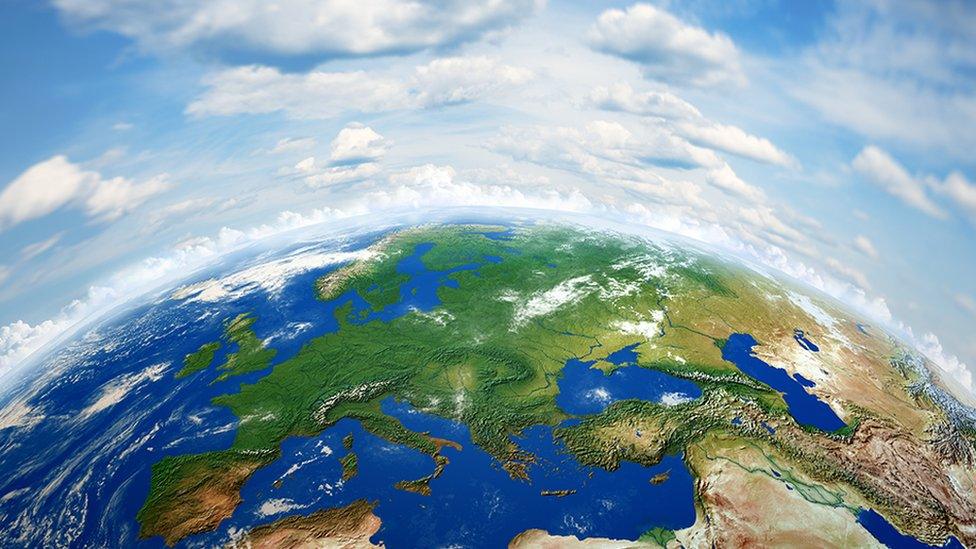Eco-friendly cafe owner: I put the environment before profits
- Published
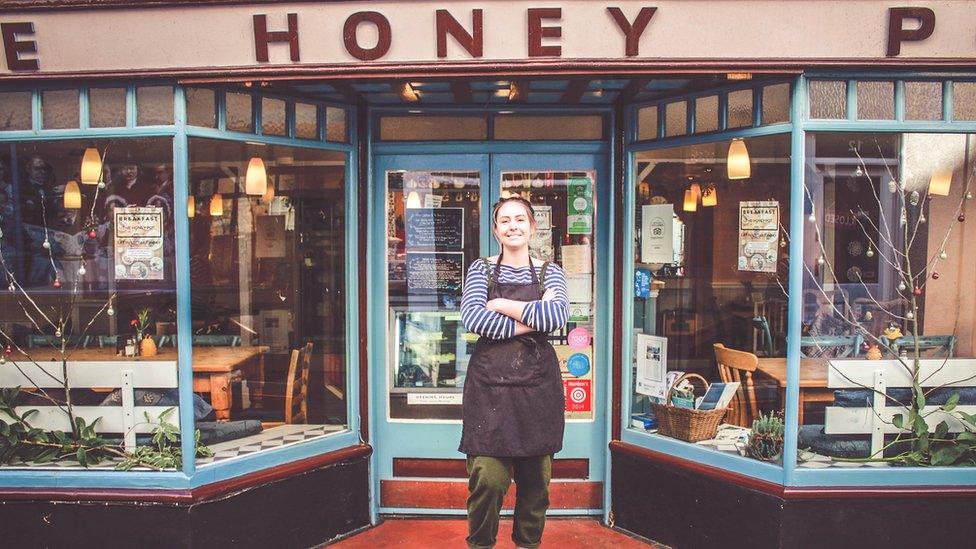
It's the lunchtime rush at the Honey Pot cafe in Penzance. It's bustling and every table's taken.
Friendly staff are dodging in and out of the kitchen making sure everyone gets their orders.
A pretty regular scene, but considering it's the first town in Britain awarded "plastic free" status - it's anything but a regular business.
The cafe's owner, 28-year-old Rachel Gunderson, pledged when they opened she'd put the environment before profits.
A single working mum, Rachel approached banks a few years ago with what she admits was "no clue how to run a business."
But, she says she blagged a mortgage and brought her eco-consciousness to every aspect of the Honey Pot.
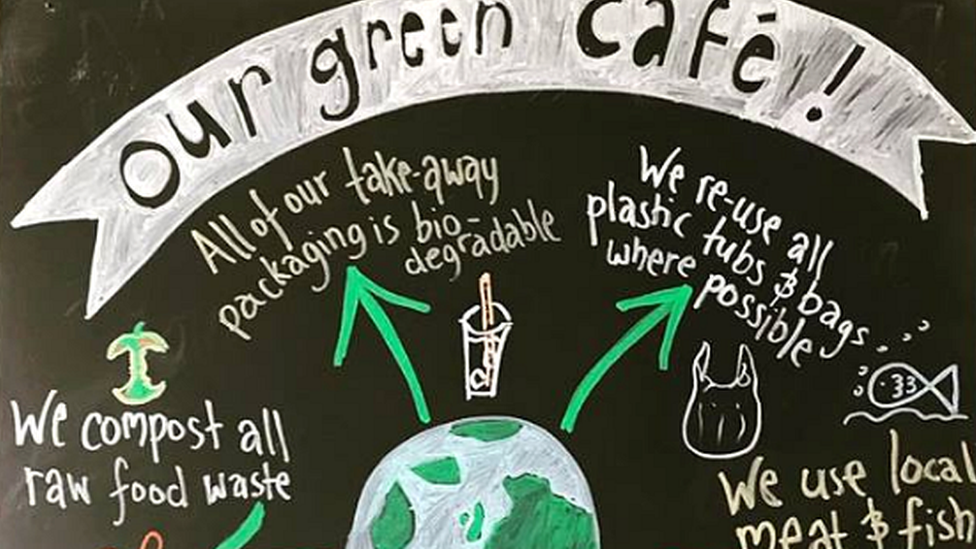
Customers can read all about how green the cafe is
"I was raised as a vegetarian" she says.
"My dad was an organic grower - he grew all our own food and kept bees."
Surprisingly, it wasn't the inspiration for the cafe's name, but the ideals she grew up with have influenced all her business decisions since.
For a cafe which serves, on average, about 60 lunches a day - their waste production is very low.
"We use one family sized wheelie bin per week of general waste and that is it," she explains.
"Everything else we either re-cycle or re-use. We compost all of our raw food waste and any cooked food waste goes to our friends the chickens."
And those chickens happen to live on the same land that grows the produce she uses in the cafe.
"It's all very circular - my dad takes the compost away and he actually grows the flowers and the greenery that we use on the tables too."
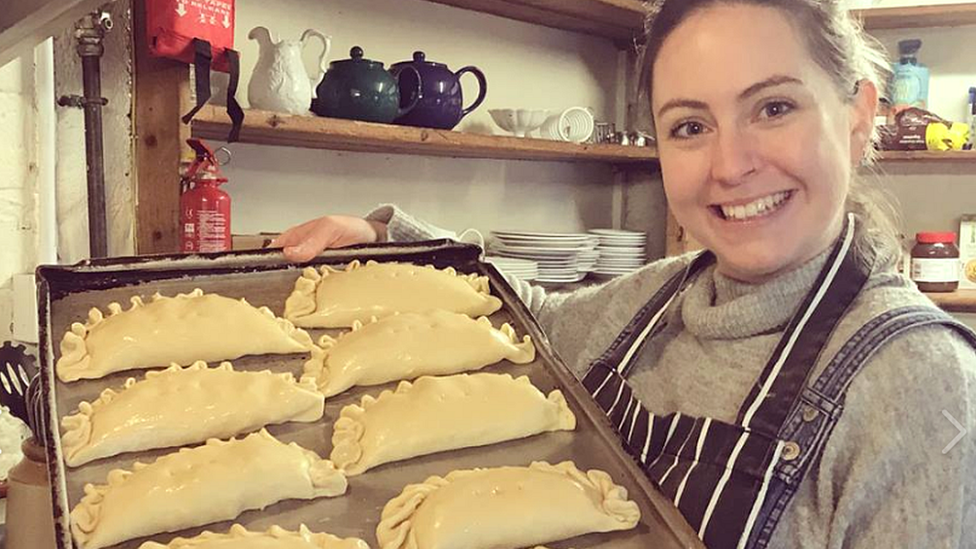
Happy pastie-maker Rachel
All the cafes straws are paper, they use recycled takeaway containers and napkins - and most surprisingly they've stopped using biros.
"We just use pencils - they're loads cheaper, they last loads longer and we've just got one of those old school sharpeners with the handle," she says.
And all that pencil sharpening has had an unintended, but very welcome side effect.
"All the staff find it very therapeutic, so if anyone needs any time out we just send them to the pencil sharpening corner," she laughs.
There's no denying though that buying compostable tea-bags, special recyclable juice cartons and generally being greener has a higher cost to the business than less eco-friendly products.
But it's a cost Rachel is prepared to shoulder.
"It's become second nature to us. It isn't as hard as you might think, once you're used to doing something and you've made those changes."
In general she says people understand the slightly higher prices and her staff are always on hand to explain their green credentials.
"The majority of customers are really happy once they've seen that the meat is locally sourced, once they've seen that it's locally grown and organic - to pay a little bit extra and if they're not they go on their way," she says.
"That's the risk I'm willing to take as a business owner. My priority is the environment and the planet."
Top photograph of Rachel Gunderson courtesy Onna Boden Design, external.


Follow Newsbeat on Instagram, external, Facebook, external, Twitter, external and YouTube, external.
Listen to Newsbeat live at 12:45 and 17:45 weekdays - or listen back here.
- Published9 August 2021
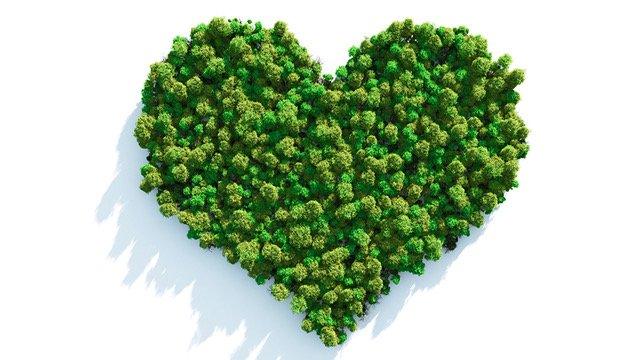
- Published17 July 2019
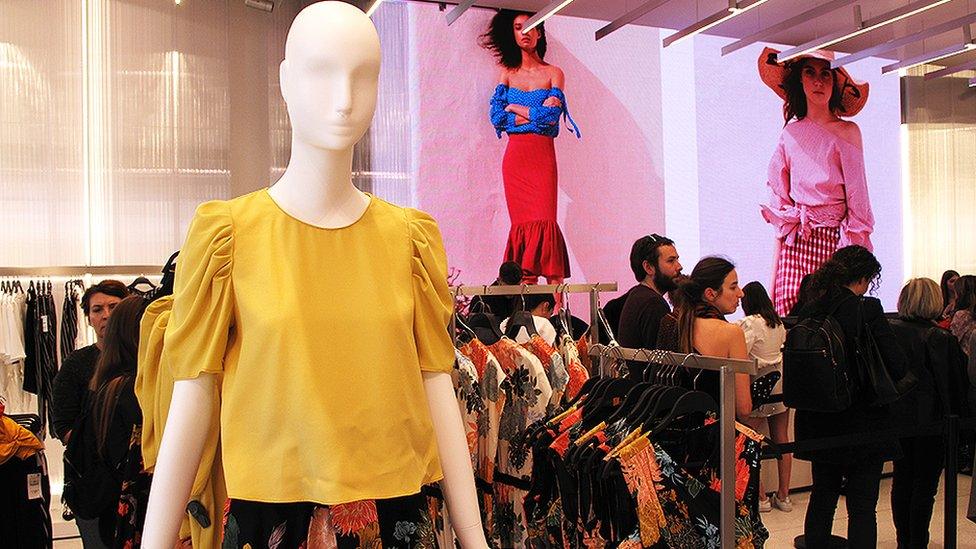
- Published3 May 2019
